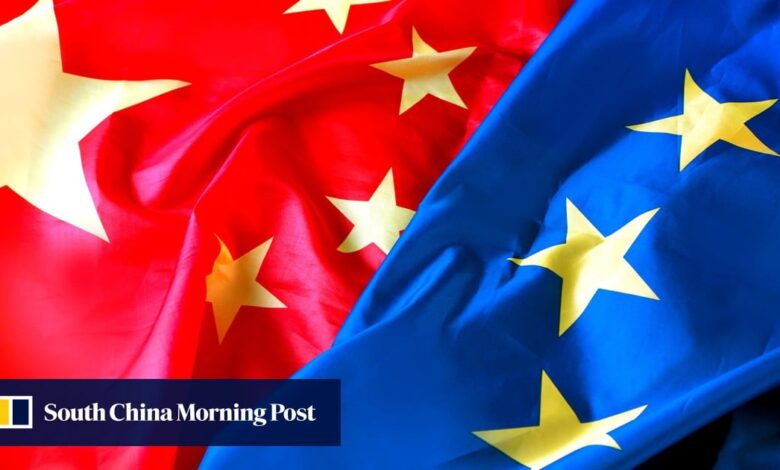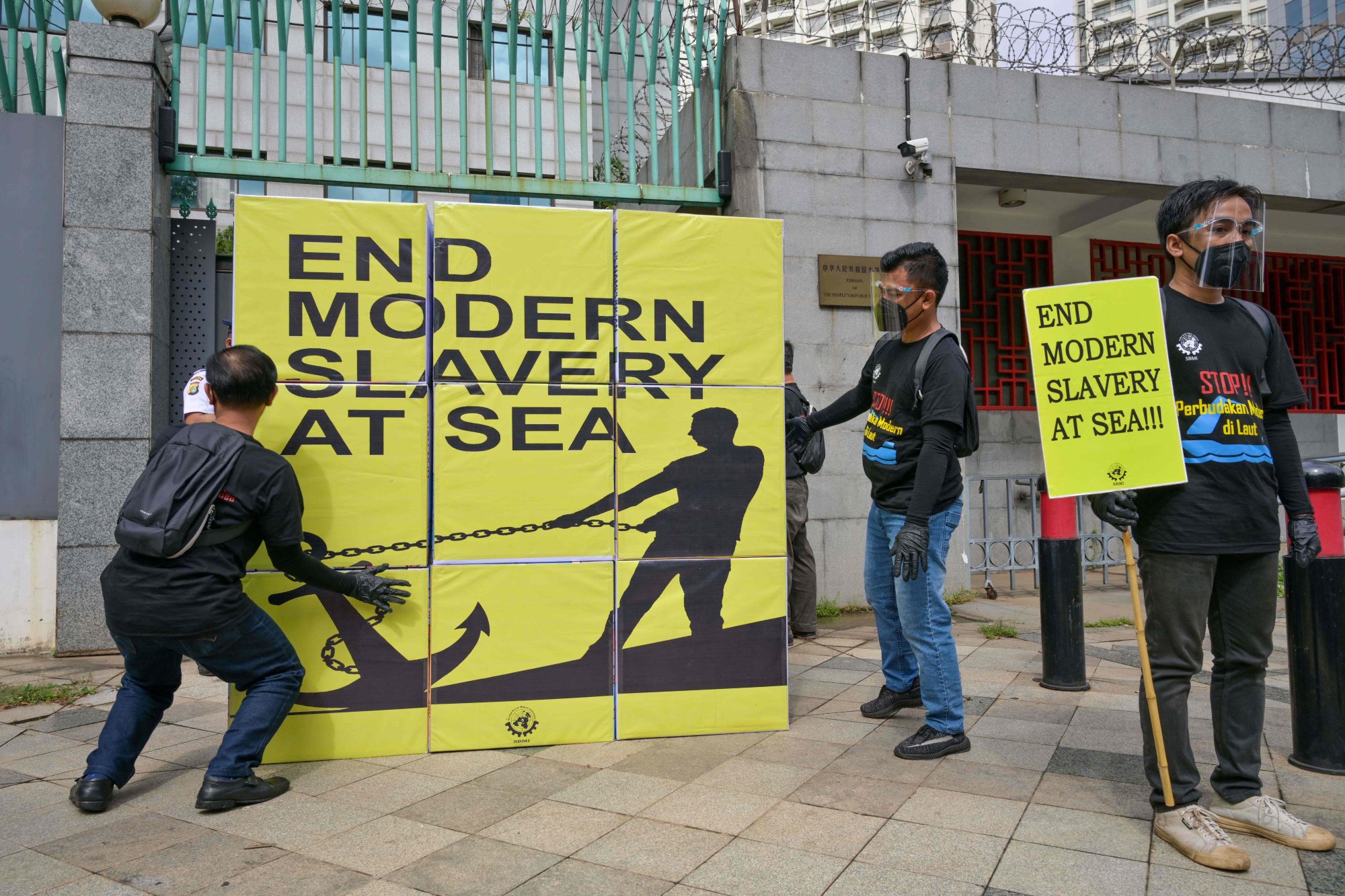Lawmakers urge European Commission to take on China’s ‘deplorable’ fishing practices

[ad_1]
The parliament will vote on Tuesday on a resolution that claims that opacity and subsidies in China’s fishing industry “severely undermines the competitiveness of the EU single market”.
“This has severe economic and labour repercussions for companies in the sector and throughout the supply chain.”
Did you know that part of the fish from forced labour among Uygurs ends up on our plates?
Addressing the debate, the European commissioner for budget and administration, Johannes Hahn, said the commission would launch a study into flags of convenience. Chinese fishing vessels are accused of flying non-Chinese flags to facilitate illegal fishing.
“We want China to move further to effectively prevent and sanction illegal, unreported and unregulated fishing,” Hahn said, adding that the commission would continue to pursue dialogue with Beijing on the topic.
The parliament’s fisheries committee was debating a non-binding resolution to be voted on in Strasbourg on Tuesday. It is seen as a way to push the commission and council – made up of the European Union’s 27 member states – to take action on the issue.
The resolution decries China’s distant-water fleet, which it says is posing a “singular threat to the viability of the European fisheries sector”.
It also “deplores the Chinese authorities’ lack of transparency concerning the number of vessels making up its distant-water fleet”, and said lawmakers were “concerned and bewildered” that the fleet’s estimated size ranges from 2,900 to nearly 17,000 vessels.
Supporting the resolution, Caroline Roose, a Green Party member, referred to a report last week by a journalistic non-profit that contained allegations about forced labour.
“Did you know that part of the fish from forced labour among Uygurs ends up on our plates? That is what Outlaw Ocean [Project] has found out, and we see a transfer of this forced labour products that then go to the US and Europe,” she said.
The resolution hammers Beijing for labelling disputed parts of the South China Sea as “domestic waters” which “leads to the exclusion of non-Chinese fishing vessels” and helps ratchet up regional tensions while attempting to reassert China’s stranglehold over the global industry.
In line with EU gripes about other Chinese industries, the MEPs complained about subsidies in China’s fishing sector, estimated to be worth “around 41 per cent of all global subsidies” in the 10 years to 2017. They also noted a gaping trade imbalance: the EU ran a deficit of €1.1 billion (US$1.16 billion) with China’s fishing and aquaculture sectors last year.
China must address trade gap with Europe or face more protectionism, Borrell says
China must address trade gap with Europe or face more protectionism, Borrell says
The resolution asked Brussels to partner with other countries to help develop and harness the technology required to monitor China’s activity – including in developing countries – and to push for an end to “stop the use of flags of convenience”.
The lawmakers want the commission to “strictly enforce EU law on the catch report and traceability system” and to “provide information on how many products that are caught by Chinese vessels subsequently enter the EU market”.
Earlier in the day, at the World Trade Organization, the EU was among the third parties to criticise the bans that China, Hong Kong and Macau have placed on imports of Japanese seafood products following the release of waste water from the Fukushima nuclear plant in August.
Japan accused the trio – each of which is an independent WTO member – of breaching global trading rules.

Also on Monday, EU lawmakers voted to endorse the parliament’s version of a ban on products made using forced labour. The measure does not name China but was written with the country in mind.
The ban was first proposed by the commission in September 2022, after which the parliament and council were tasked with coming up with their own proposed versions. Once adopted by the respective institutions, the three will negotiate a final text for adoption by the EU.
The parliament’s version would ensure that companies operating in areas considered “high-risk” would face a higher burden of proof to ensure their imports are not made using forced labour.
“We cannot and will not postpone the ban on products made from forced labour,” said René Repasi, consumer and internal market policy spokesman for the Social Democrats group.
“Whether in cotton production in China, coffee cultivation in Brazil or in the German meat industry: by banning the sale of products made from forced labour, we ensure that companies do not gain competitive advantages from inhumane work,” he added.
[ad_2]
Source link






